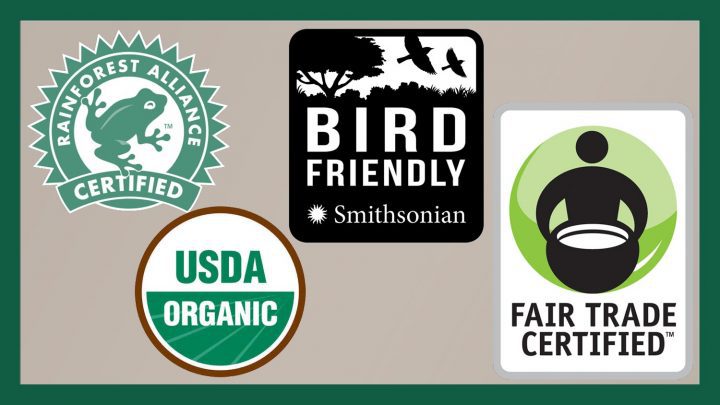Blog
What’s the Difference Between Organic Coffee and Fair Trade Coffee?
When purchasing coffee beans, you are not just purchasing beans; rather you are helping support families that grow, harvest, roast and ship it directly to stores near you. With so many labels on coffee products it can be confusing as to what really lies behind them – that is why Charlotte Vallaeys of Consumer Reports was brought on board as senior policy analyst and food-label expert to explain the differences between “organic” and “fair trade”, and what these mean for farmers of coffee plants.
Organic certification certifying products as being grown without synthetic fertilizers, pesticides or herbicides helps preserve the environment in coffee growing regions. Farmers who wish to become organic certified must satisfy certain requirements – including not using any chemicals on their crops within three years prior to certification; this may prove challenging for smallholders in developing nations who often manage their farms on their own.
Fair trade certification ensures those responsible for growing, harvesting, and processing coffee receive a price that covers production costs – giving farmers enough money to invest back into their communities while offering living wages to workers. In addition, fair trade encourages sustainable farming practices that preserve our planet for future generations.
Farms producing fair trade coffee must adhere to stringent standards set forth by the fair trade organization that certifies their products, such as paying an adequate living wage that covers basic needs, providing safe working conditions for employees on the farm and democratic decision-making processes. Farmers who meet these standards may even qualify to earn an additional premium above and beyond the minimum fair trade price which they can invest into projects that improve productivity, quality and cost-efficient farming.
Though both organic and fair trade can have positive ramifications for coffee farmers’ lives, choosing one depends on your priorities. If your primary consideration is environmental impact reduction, organic might be best; but if supporting farmers and their communities is what matters to you more than organic, fair trade could be your go-to choice – there’s even some fair trade coffee that also qualifies as organic!
Next time you enjoy a cup of joe, take a moment to think about those behind it – the families working to bring you it and choose organic or fair trade options, whether organic, fair trade, or both! By making these decisions you are helping these families live better lives while giving their children a brighter future – remember one cup at a time can have a dramatic effect! Thank you for reading!



